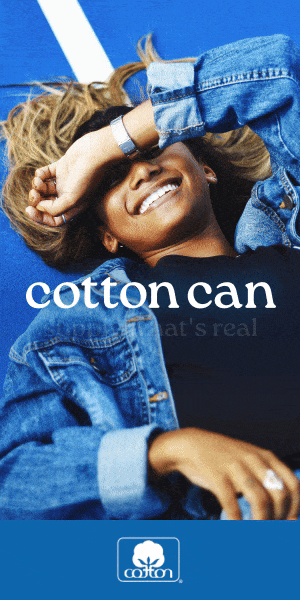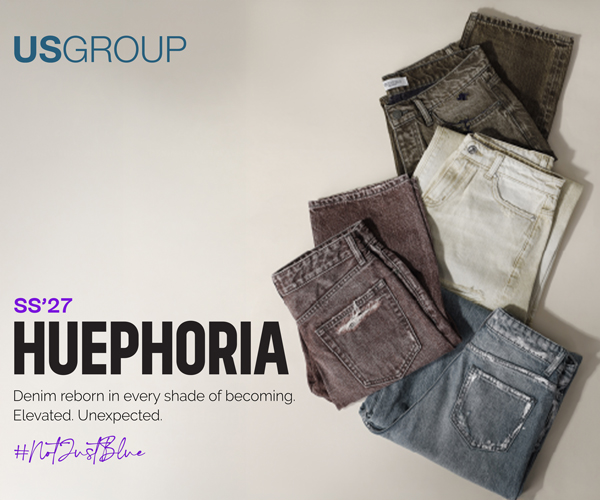Heartbeat of the community

Denim mills around the world have proven to be caring and responsible businesses – from funding local schools and healthcare, to providing accommodation and donating to charity. Inside Denim went digging for some shining examples.
Every so often, the global media spotlight shines fleetingly on garment workers, who in many countries over the past few years have campaigned for higher wages and better conditions. It is only right that these stories are told, and while consumers would be aghast to see people working in poor conditions, a disconnect between clothing and the people that make them means that, sadly, workplaces are not always satisfactory, and the uneven spread of reward along the chain enables a system in which workers can suffer. While the global denim industry is in no way squeaky clean, there are many examples of mills and manufacturers that push against this narrative and look after their employees, their families and the communities, building stronger teams, better educated workers and nourishing a pool of inspired and ambitious future talent. These businesses value the vital input of their workforce, but these stories are not widely known.
Egypt-headquartered Sharabati Denim has a well-rounded package for employees, which includes accommodation, healthcare and schooling. It links with local schools, hosts students and provides grants for universities. The company built 27 apartment buildings consisting of 376 units, while a central kitchen and bakery provide 3,500 free meals a day for staff in Egypt. Basic food supplies are distributed to employees as well as sent out to local charities, and staff can access a subsidised gym.
During the summer, Sharabati hires holiday accommodation in a tourist village on the north coast. “The company coordinates all matters related to the resort through a dedicated supervision committee, which includes booking housing units and providing transport,” explains Dilek Erek, Sharabati’s global marketing director.
Healthcare provision is critical in countries where medical bills can be costly, and many mills offer health insurance and enable access to doctors and medication. Sharabati provides medical offices and pharmacy services, paying health insurance and subsidising a private scheme, while Karachi-based Naveena Denim Mills (NDM) has teamed up with outside agencies to provide workshops on physical and mental health. “These initiatives underscore our holistic approach to supporting the health and welfare of our workforce,” says Aydan Tuzun, senior vice-president of sales at NDM.
NDM aligns its strategies with the United Nations’ Sustainable Development Goals, including number four, Quality Education. It has funded four of The Citizens Foundation schools since 2004, benefiting around 2,000 students, providing the schools with classrooms, libraries, science labs and recreational areas. The Employee with Purpose programme encourages staff to drive change in their communities. This year, the focus has been on SDG 13 and 14: Climate Action and Life Below Water, with the mill partnering on workshops for schools and children’s groups. It also supports The Kiran Foundation, which provides aid in marginalised communities, and the FESF Deaf Reach Programme, which supports deaf children through education.
Inspiring young people
Educating the next generation is also a focus at Turkish mill Bossa. It is actively involved with several universities, teaching students about all stages of denim production, from the fibre to garment-making. As part of the Sector at the Campus (Sektör Kampüste) programme, led by the Turkish Ministry of Industry and Technology, Bossa prepares both online and face-to-face training sessions. “Students graduate with knowledge of denim and sustainability and we create a potential job pool,” explains research manager Deniz Civan Yigit. Alongside the university programme, the mill reaches out to primary and secondary schools. “We raise the students’ awareness and help them make their choices for the future,” she adds.
Similarly, Spanish mill Tejidos Royo provides students from Valencia’s College of Art and Design School (EASD ) and Madrid’s University UPM Fashion Design Centre with fabrics, the latter for a design competition in collaboration with H&M, the Circular Fashion Programme, with Royo’s experts on the judging panel.
It also invites students and schoolchildren into the mill, to help them learn about the wide range of jobs on offer, particularly on the technical side, as part of a national scheme. “This helps them to understand there are other types of professions, especially industrial, that are in high demand,” says marketing manager Cristina Cerdeira Casal.
Charity focus
The José y Ana Royo Foundation provides aid to employees’ families – for instance, help with school supplies and student loans – as well as donating to charity. To coincide with the launch of its DRY Indigo technology (which uses a foam dyeing process with virtually no water), the company established One Million Litres, representing the water saved in a year of using the process, and donated the economic equivalent to UNICEF's sanitation programmes. In the second year, the public voted on a beneficiary: more than 1,500 children now have access to drinking water at Chakaka Primary School in Malawi. “It’s important for companies to have a direct impact on their communities, whether it's social, educational or charitable work,” explains company director Jose Royo. “At Tejidos Royo we have followed in the path of our ancestors, who always kept in mind the village in which they grew up and its people. The José and Ana Royo Foundation is a living example of this, as it continues to benefit many people today.”
Charitable work is a cornerstone of Pakistan-based Siddiqsons through its support of the Aziz Rafi Trust, a foundation dedicated to community development. Through the platform, it has donated to schools and colleges, provided fresh drinking water via boring and hand pumps in villages across Sindh, supported employees’ children with scholarships and donated to The Health Foundation (Pakistan) and Aasra Society. To empower women, Siddiqsons recently set up a Girls’ IT Centre at its factory in Hub, Balochistan province, to equip young women with IT skills, opening up career opportunities. It also teamed up with local girls’ colleges for the creation of a garment stitching centre. “By investing in the education and training of women, we aim to foster gender equality and create a more inclusive workforce,” says Asim Siddiqui, head of creative at Siddiqsons.
Cotton as a conduit
This is also a focus for Artistic Fabric Mills (AFM), a women-led business that seeks to empower women through various schemes, including working alongside cotton-cultivating communities to set up schemes for regenerative and organic cotton. The company this summer received Regenagri certification for a farming project it is supporting in the Barkhan region of Balochistan, with women taking on leadership positions. “By challenging traditional gender norms, we are fostering a community that values gender equality and promotes sustainable agriculture practices, enabling women to connect with all shareholders from the cotton industry, share knowledge and build support networks within the textile sector,” explains Asma Omar, CSR strategy manager at AFM.
Similarly, AGI Denim launched its own Regenerative Cotton Farm Project, and teamed up with the Rural Education and Economic Development Society (REEDS) to support 1,300 cotton farmers in adopting regenerative agriculture principles and practices.
The company is focused on achieving gender balance across managerial positions by 2030, as per UN SDG 5. Its factories include childcare facilities, free transport for women workers and accessible workspaces and provides healthcare access and training programmes. It funds two schools, which, in 2023, enabled 376 children to access quality education, and helped set up a medical clinic that has provided care to more than 90,000 people.
Mills operating in water-stressed areas also view investing in water as part of their remit as responsible businesses. Artistic Milliners’ Water Stewardship (AWS) Project in Karachi and Rahim Yar Khan aims to replenish freshwater sources around the Landhi and Korangi industrial area, providing clean water to improve health and living conditions. Part of the strategy involves working with local communities to reuse water for horticulture, treat wastewater with nature-based solutions and restore freshwater through urban plantation. “Investing in workers and the community is crucial as it drives sustainability, fosters innovation and ensures long-term success,” says Saqib Sohail, manager of responsible business projects at Artistic Milliners. “By enhancing well-being across the board and building strong community partnerships, AM not only improves the lives of its employees and local residents but also secures a sustainable and prosperous future for the company.”
The vertical manufacturer also supports a school in Gharo, financing salaries and various school events.
These are just some of the multitude of stories of how employees provide the backbone of the business, and the business becomes the heartbeat, investing in them in return. On International Charity Day at the start of September, Siddiqsons summed up the notion: “Charity begins with a single act of kindness. Together, we can continue to make a difference and uplift those in need. Let’s keep giving and supporting, today and every day.”
Empowerment through fashion
Brazil’s Vicunha provides training for young people in socially vulnerable situations in the states of Ceará and Rio Grande do Norte. Since 2004, around 440 young people have undertaken training and had the opportunity to join an internship programme. Students have access to benefits such as medical care, life insurance, and company-provided meals and uniforms. The company also supports social initiatives by supplying fabric and know-how through its fabric bank, V.Tex, with a view that learning design and garment-making can empower young people.
Projects that have benefitted include:
• The Mulheres do Brasil (Brazilian Women) initiative, which seeks to train socially vulnerable young women through sewing classes
• InMod Cria Costura, a São Paulo Fashion Week initiative that trains young women on sewing and the garment production process and organises visits to Vicunha’s showroom
• PanoSocial, a social company that makes sustainable textile products and helps people with prior justice system involvement into the job market; and
• Casa de Criadores, an event dedicated to Brazilian fashion.
Image: AFM’s Regenerative Cotton initiative funds training and education workshops for farmers and communities, and is implemented by WWF Pakistan. The programme started with 500 farmers last year and is hoping to expand to 1,000 by the end of 2024.
Photo: AFM













